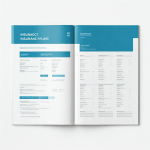
High-net-worth buyers rarely think in single lanes. Their investment choices tend to balance growth, stability, and long-term value, often including premium properties such as Vela Bay alongside alternative assets. That is why many of them invest in both luxury condominiums and diamonds. At first glance, these assets seem very different. One is fixed and income-producing. The other is portable and discreet. But together, they serve complementary roles in a sophisticated portfolio. This pairing is not about taste or status. It is about control, diversification, and optionality.
Tangible assets still matter.
Wealthy investors often prefer assets they can see, touch, and understand. Condos and diamonds fall squarely into that category. Both are tangible stores of value in a world where paper assets and digital instruments can feel abstract or unstable.
Condos represent land, location, and utility.
Diamonds represent rarity, durability, and global demand. Neither depends entirely on financial markets to retain value. That independence is part of their appeal.
During periods of inflation, currency volatility, or political uncertainty, tangible assets tend to hold their ground better than many financial products. For high-net-worth buyers, that matters more than short-term returns.
Condos offer structure and income.
Luxury condominiums are often the foundation. They provide predictable value tied to geography, infrastructure, and long-term urban growth. In major cities, well-located condos benefit from limited supply, zoning constraints, and sustained demand.
For many buyers, condos also generate rental income. That income can offset holding costs or provide a steady cash flow. Even when markets soften, prime properties tend to recover faster than secondary assets.
Condos also allow leverage. Buyers can use financing strategically to preserve liquidity while retaining control of a valuable asset. Over time, appreciation combined with rental income creates a clear, trackable return profile.
But condos are not flexible. They are illiquid. Selling takes time. Management requires effort. And capital is tied to one location.
That is where diamonds come in.
Diamonds provide portability and discretion.
Diamonds serve a very different purpose. They are compact, transportable, and easy to store. A significant amount of value can fit in a pocket or a small safe. For global investors, that portability is critical.
Diamonds also offer discretion. Ownership is private. There is no public registry. Transfers can be simple and quiet. For individuals concerned with privacy, asset mobility, or cross-border flexibility, diamonds solve problems that real estate cannot.
Unlike many collectibles, diamonds have standardized grading systems. Quality can be assessed globally. While pricing varies, top-tier stones have deep international markets. That makes them easier to liquidate than many luxury goods.
Diamonds do not generate income. They are not meant to. They function more like insurance. A hedge against systemic risk, currency devaluation, or sudden capital controls.
Diversification beyond traditional markets
High-net-worth buyers are less focused on beating benchmarks and more focused on preserving purchasing power. That requires diversification beyond stocks and bonds.
Condos and diamonds respond differently to economic cycles. Real estate is tied to interest rates, employment, and local supply. Diamonds are driven by global demand, mining output, and long-term scarcity.
When real estate markets slow, diamonds may hold steady. When liquidity tightens, property values may pause while portable assets remain mobile. Holding both reduces dependency on any single economic outcome.
This diversification is not about timing markets. It is about resilience.
Wealth planning and generational transfer
Another reason high-net-worth buyers invest in both assets is estate planning. Condos and diamonds transfer differently across generations, and that flexibility is useful.
Real estate can anchor family wealth. It can be placed in trusts, used by heirs, or sold gradually. Diamonds, by contrast, are easy to divide, gift, or move. They can cross borders with fewer complications than property.
For families with international footprints, this matters. A condo ties wealth to a city. A diamond travels with the owner.
Together, they allow wealth to be structured, protected, and passed on with more control.
Emotional value without speculation
There is also a quieter factor. Both condos and diamonds offer emotional security. A prime residence or investment property feels solid. A high-quality diamond feels permanent.
This is not about speculation or flipping. High-net-worth buyers tend to avoid assets that rely purely on hype. They prefer things that have held value across decades and cultures.
Diamonds have done that. So has well-located real estate.
Neither asset promises explosive growth. That is the point. They offer stability, not excitement.
Different risks, balanced exposure
Every asset carries risk. Condos face regulatory changes, taxes, maintenance costs, and local market swings. Diamonds face pricing opacity, liquidity spreads, and the need for expert sourcing.
Owning both spreads those risks. What affects one often does not affect the other. That balance allows investors to stay patient and avoid forced decisions.
High-net-worth buyers value that patience. It gives them leverage when others are under pressure.
A deliberate pairing
Investing in both condos and diamonds is not redundant. It is intentional. One anchors wealth. The other mobilizes it. One produces income. The other preserves optionality.
For high-net-worth buyers, the goal is not to chase returns. It is to maintain control in an unpredictable world. Condos and diamonds, together, help them do exactly that.
 High-net-worth buyers rarely think in single lanes. Their investment choices tend to balance growth, stability, and long-term value, often including premium properties such as Vela Bay alongside alternative assets. That is why many of them invest in both luxury condominiums and diamonds. At first glance, these assets seem very different. One is fixed and income-producing. The other is portable and discreet. But together, they serve complementary roles in a sophisticated portfolio. This pairing is not about taste or status. It is about control, diversification, and optionality.
High-net-worth buyers rarely think in single lanes. Their investment choices tend to balance growth, stability, and long-term value, often including premium properties such as Vela Bay alongside alternative assets. That is why many of them invest in both luxury condominiums and diamonds. At first glance, these assets seem very different. One is fixed and income-producing. The other is portable and discreet. But together, they serve complementary roles in a sophisticated portfolio. This pairing is not about taste or status. It is about control, diversification, and optionality.



 The precious gems market has seen significant shifts in recent years, driven by evolving consumer preferences and technological advancements. One of the most notable trends is the growing popularity of lab-grown diamonds. These diamonds, which are chemically and physically identical to natural diamonds, offer a more affordable and sustainable alternative to traditionally mined gems. As concerns about the environmental and ethical implications of mining continue to rise, lab-grown diamonds are becoming an increasingly attractive option for consumers.
The precious gems market has seen significant shifts in recent years, driven by evolving consumer preferences and technological advancements. One of the most notable trends is the growing popularity of lab-grown diamonds. These diamonds, which are chemically and physically identical to natural diamonds, offer a more affordable and sustainable alternative to traditionally mined gems. As concerns about the environmental and ethical implications of mining continue to rise, lab-grown diamonds are becoming an increasingly attractive option for consumers.



























 Balancing your investment portfolio is essential for financial security. While mortgages are often a go-to option for steady returns, exploring alternative investments like rare gems can provide added diversification. By blending traditional and alternative assets, you can reduce risks and optimize your financial future.
Balancing your investment portfolio is essential for financial security. While mortgages are often a go-to option for steady returns, exploring alternative investments like rare gems can provide added diversification. By blending traditional and alternative assets, you can reduce risks and optimize your financial future.
 Investing is a key strategy for growing wealth and securing financial stability. Real estate and precious gems are two options that often appeal to investors seeking to diversify their portfolios. Both have unique advantages and potential downsides. Choosing between them depends on your goals, risk tolerance, and the kind of returns you seek.
Investing is a key strategy for growing wealth and securing financial stability. Real estate and precious gems are two options that often appeal to investors seeking to diversify their portfolios. Both have unique advantages and potential downsides. Choosing between them depends on your goals, risk tolerance, and the kind of returns you seek. Decentralized exchanges (DEXs) are rapidly transforming the financial landscape. These platforms allow users to trade cryptocurrencies directly with one another, bypassing traditional financial intermediaries like banks and brokers. This shift is altering trading practices and challenging the established norms of economic dynamics globally.
Decentralized exchanges (DEXs) are rapidly transforming the financial landscape. These platforms allow users to trade cryptocurrencies directly with one another, bypassing traditional financial intermediaries like banks and brokers. This shift is altering trading practices and challenging the established norms of economic dynamics globally. Insurance brokers in Perth will carefully evaluate your financial circumstances and insurance requirements to pinpoint the most appropriate coverage choices.
Insurance brokers in Perth will carefully evaluate your financial circumstances and insurance requirements to pinpoint the most appropriate coverage choices. Growing Popularity of Precious Gems
Growing Popularity of Precious Gems

 It isn’t necessarily important to have the deed to the property. Thus, even if you open a bank account in your sole name during your marriage to hold your earnings, that won’t prevent the asset from being considered marital property.
It isn’t necessarily important to have the deed to the property. Thus, even if you open a bank account in your sole name during your marriage to hold your earnings, that won’t prevent the asset from being considered marital property.





